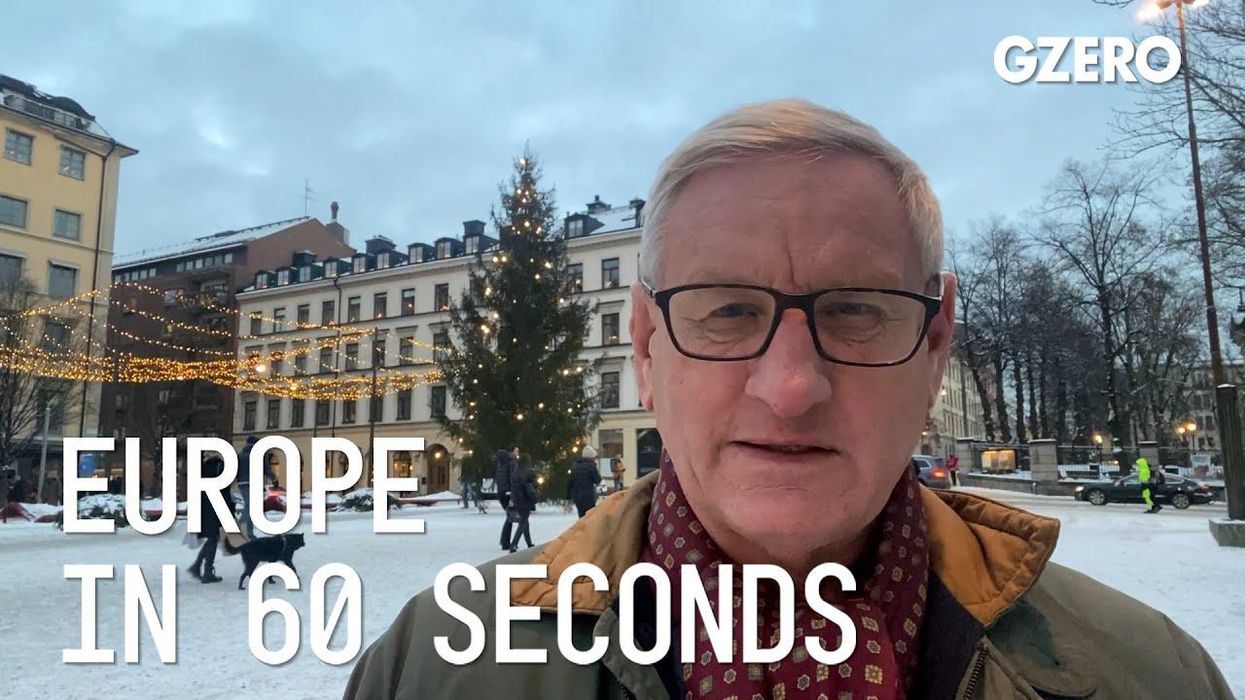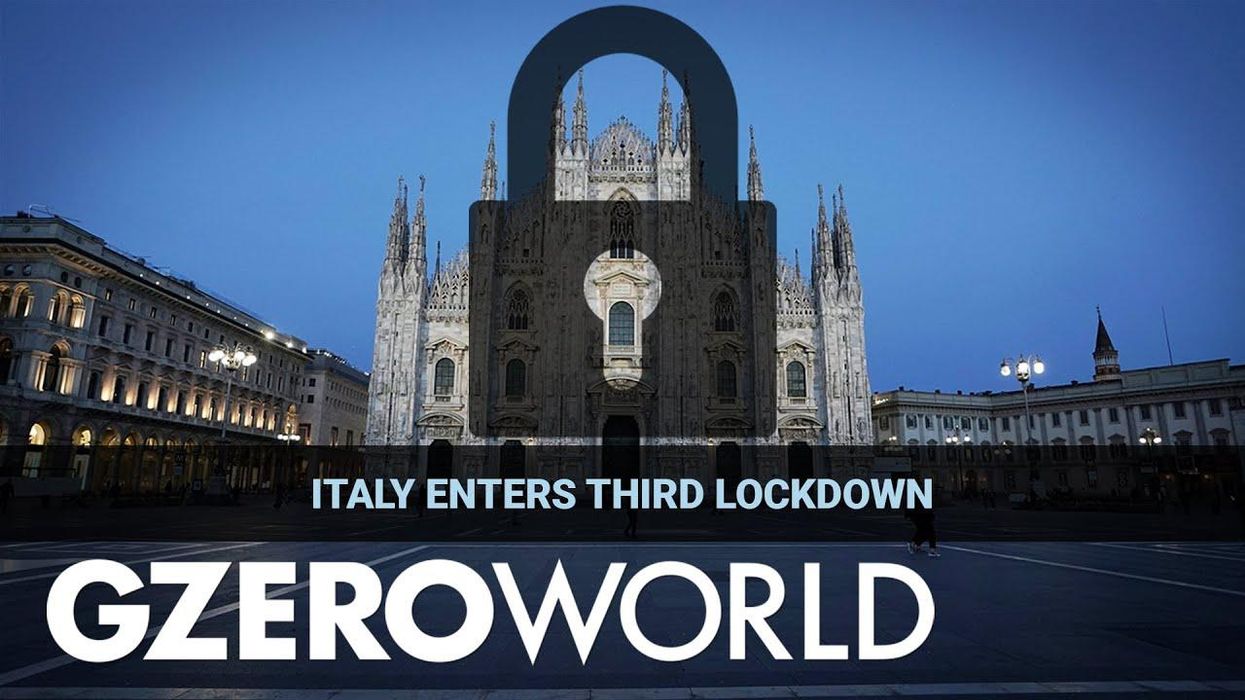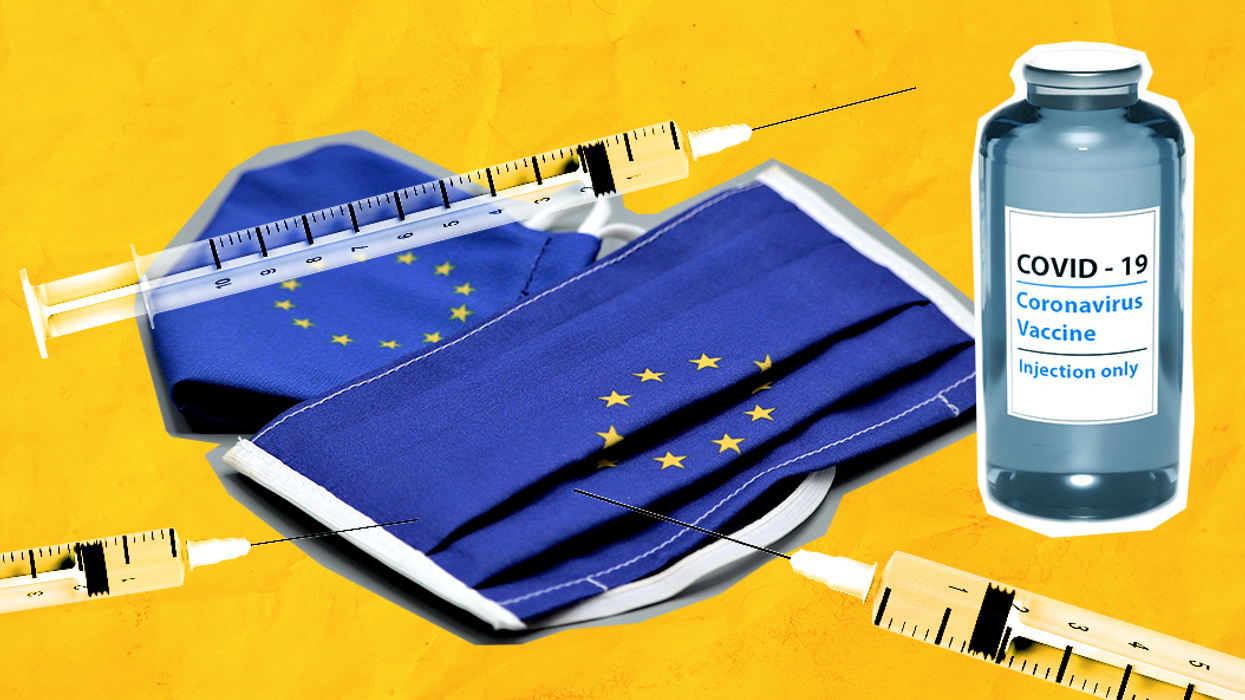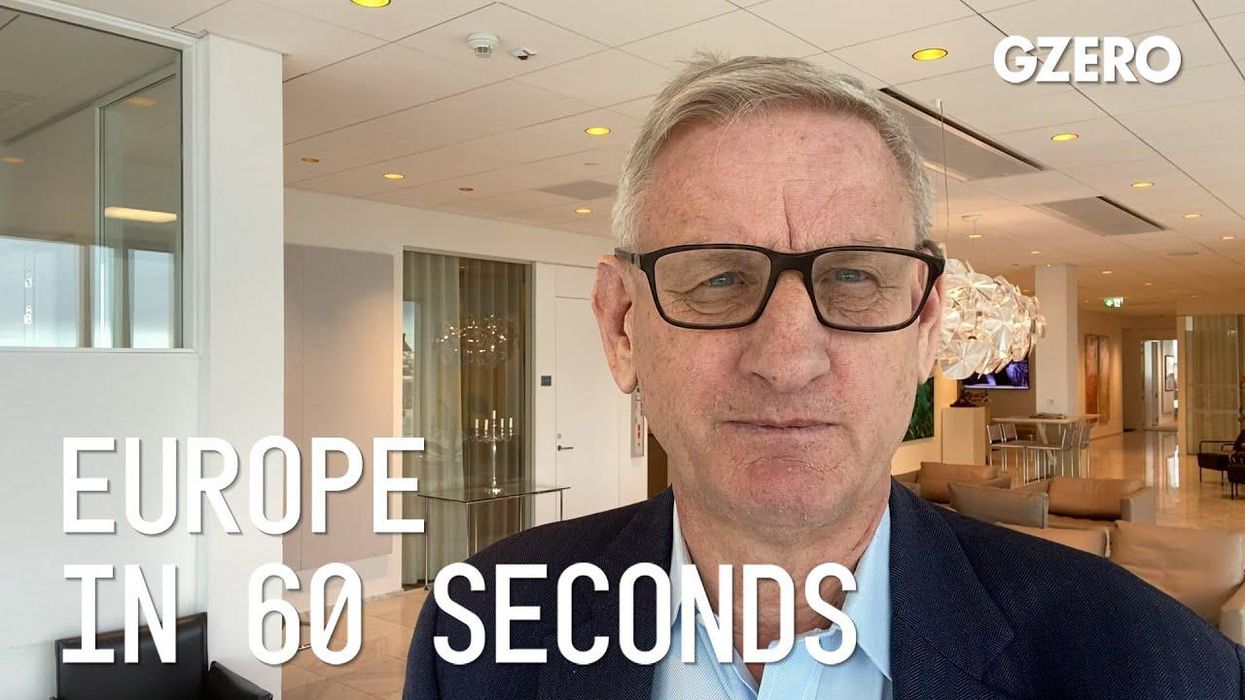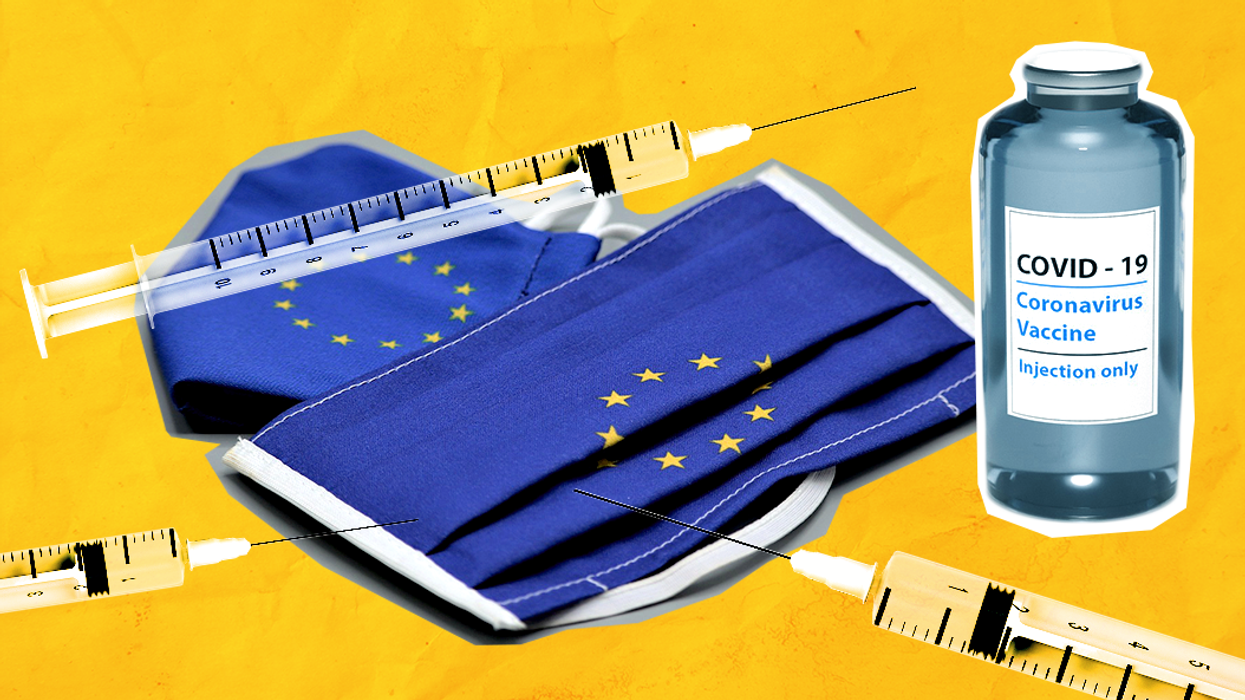GZERO Europe
EU battles delta variant with omicron next; Sweden government turmoil
How is Europe dealing with new omicron version of the pandemic? Second question. What's the turmoil in Sweden about governance? Carl Bildt, former Prime Minister and Foreign Minister of Sweden, shares his perspective from Europe.
Dec 04, 2021
